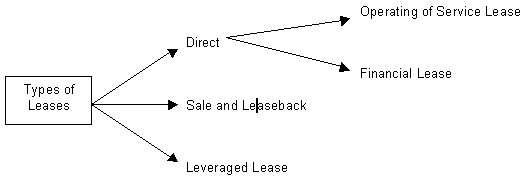Glossary Of Financial Terms starting with L
List of Financial Terms (Alphabet Wise)
Lease A contractual arrangement by which a firm or person acquires the right to use an ASSET for a definite period, in return for rent payable at regular intervals. Leasing is an alternative source of funds with certain advantages as listed below :- Availability of 100 percent financing.
- Tax deduction on lease payments.
- Possibility of a faster tax write-off, depending on the payments schedule.
- Flexible terms of payment.
- Borrowing capacity is not affected since it is an OFF-BALANCE SHEET form of financing.
There are different types of leasing arrangements such as the following :

Financial Lease A lease with no cancellation clause and no provision for maintenance; here, the lease covers the useful life of an ASSET and its cost is fully AMORTIZED. The rentals may be so structured as to enable the lessor to recoup the investment with a return in the early part of the term, known as the ‘Primary Lease Period’. Thus, only a nominal rent is payable during the ‘Secondary Lease Period’, which comprises the remainder of the asset’s life.
Letter of Credit A financial instrument issued by a bank on behalf of a purchaser of goods, undertaking responsibility to pay a certain amount during a specified period, for goods delivered.
LIBOR An abbreviation for London Inter Bank Offer Rate, which is an average of the interest rates at which leading international banks are prepared to offer term EURODOLLAR DEPOSITS to each other. The interest rate differs according to the deposit MATURITY and the soundness of borrowing banks. Libor is also used as a reference rate in quoting interest rates on various other loans.
Limited Liability A term which conveys that the responsibility of shareholders, for debts and other LIABILITIES of their company, is limited to the extent of the amount remaining unpaid towards their shares in the company. In other words, each shareholder is liable to pay the full nominal value of shares held by him or her.
Listing The grant of approval for dealings in a certain security (e.g., share or DEBENTURE) at a stock exchange. Consequently, companies must pay their respective exchanges, an annual listing fee which is linked to the PAID-UP CAPITAL. (See also LISTING AGREEMENT).
Listing Agreement A detailed undertaking to be submitted to a stock exchange by a company whose security is to be admitted for trading on the exchange. The provisions contained in a prescribed format relate to, among other things, time-bound registration of shares, issue of new certificates in lieu of torn or defaced ones and timely intimation to the exchange authorities regarding the board of directors’ meetings on important matters.
By an ordinance promulgated in January 1995, the Government empowered SEBI to impose punishment for violation of the listing agreement.
Loan syndication The participation by a group of lending institutions as financiers to a single borrower, so that no institution individually has a high exposure.
The borrower may select a bank to arrange for syndication, after reviewing BIDS from different banks. The syndicating bank then invites the participation of other banks, for which a detailed write-up (Information Memorandum) may be circulated. Although the borrowing company signs a common document (containing clauses relating to term, interest, repayment and security), drawn up by the syndicate manager, it has a distinct contractual relationship with each of the syndicate members. In syndication, the interest charged by member banks may differ, unlike in a CONSORTIUM arrangement. Loan syndications can be arranged to finance term requirements or WORKING CAPITAL. The interest rate, which may be fixed or floating, mainly depends on the credit standing of a borrower. Thus, creditworthy borrowers may find syndication more advantageous. (See also BEST EFFORTS BASIS and SHETTY COMMITTEE.)
Lock-box A facility used in the U.S. and elsewhere for speeding up collections. A bank collects and arranges for clearance of cheques that are sent by customers to a designated post office box. The advantage of this cash management system is that it eliminates the clerical functions prior to the deposit of the cheques. The company is thereby able to reduce FLOAT and realize sale proceeds faster.
More Links



